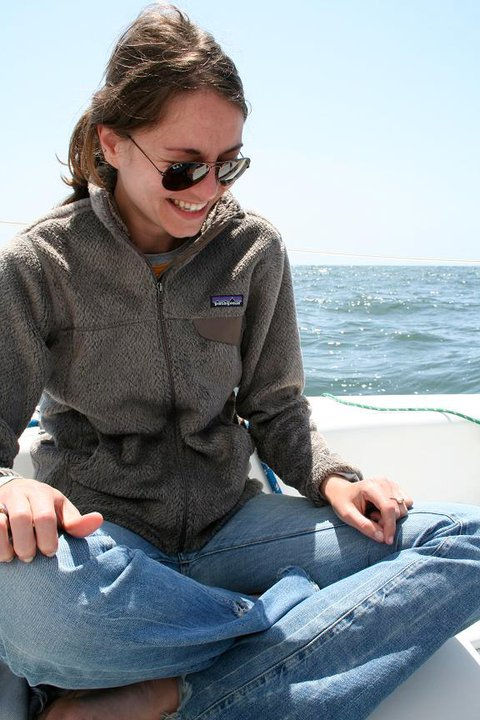As Maine begins to reopen, our small businesses play an important role in ensuring the health of Mainers and the longevity of our economic recovery.
Even though our small businesses are crucial to the continued health and safety of our state, many have been provided with inadequate resources to weather this storm. Despite lacking continued federal assistance, adequate representation from business advocacy groups, and rent or mortgage relief options, many small business owners have become leaders in protecting public health. Mainers for Working Families reached out to some of the local small business owners who have been working to protect our communities even as they face their own financial hardships to hear how they’re managing during this crisis, and what they’ve done to keep their doors open and our communities safe.

Erin Kiley is the owner of Portland Flea-For-All, and has been on the frontlines of advocating for the needs of small businesses throughout this crisis. One of the most pressing of those needs, Kiley says, is continued federal assistance.
“It shouldn’t be up to small businesses right now to save the economy. It should be up to the federal government to make sure the economy makes it through, and we have the tools to get our businesses through this to the other side.”
While continued federal assistance has not yet been forthcoming, Kiley has done extensive research on the nature of the virus, and how to stop the spread of it within her store.
She made the decision to close Portland Flea-For-All in mid-March, before any official emergency order came down.
“We closed the store on March 15,” said Kiley. “Our business is a huge tourist destination. We felt like we had to be leaders on this because we draw so many people…on a busy day we can have up to a thousand people in the store.”
Kiley, who owns and operates her business with her husband, decided to reopen in late June, after strict social distancing measures were put into place.

Their store is now only open for appointment, with a limited number of slots available per hour. Customers are only allowed in with masks on and after sanitizing their hands. Kiley’s business also instituted a thorough cleaning process and contact tracing. For those that do not feel comfortable entering the store, they offer online shopping and contactless curbside pick up.
Kiley said the decision to close and eventually reopen with such stringent safety measures was an easy one.
“We had enough facts about the science of the virus, we understood the importance of contact tracing and properly cleaned surfaces. It was basically a juggling act of understanding how to weigh our economic interest with knowing how to open safely so customers could feel comfortable coming into the store.”
While their business is adjusting to this new model, Kiley said there has been some serious frustration with business advocacy groups that aren't representing the real needs of small businesses.
Recently, the tourism industry and its lobbying firms released a letter calling on Gov. Janet Mills to lift the 14-day self-quarantine measure for those traveling from out of state, citing the need to protect small businesses. Kiley called their bluff.
“These industries were purporting to speak on behalf of small businesses. Every business I had been talking to was really in favor of the quarantine,” said Kiley. “We all felt like it was one of the only truly effective measures for keeping Maine's numbers low.”
In response, Kiley wrote a letter supporting the 14-day self-quarantine order. It was co-signed by 85 fellow small business owners, and sent to Mills and the chairs of her Economic Recovery Committee.
Her advocacy isn’t done yet. Kiley is a member of multiple business coalitions pushing for more federal relief.
“What we’ve been trying to do instead is advocate for federal assistance, for rent and mortgage relief and expanded unemployment insurance, so we can make choices that are in the interest of public health and our business, and not just keeping the economy afloat.”
While Maine continues to battle this pandemic, Kiley stressed the importance of supporting each other.
“When you go to a business that you think is doing a really good job, continue to support them. When you see a neighbor who is doing it right, tell them so. [Mainers] can continue to be role models for our communities and for the rest of the country.”


